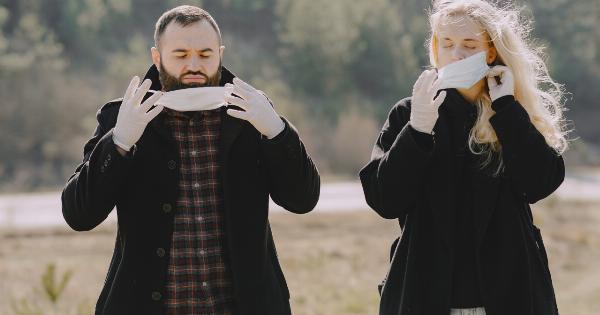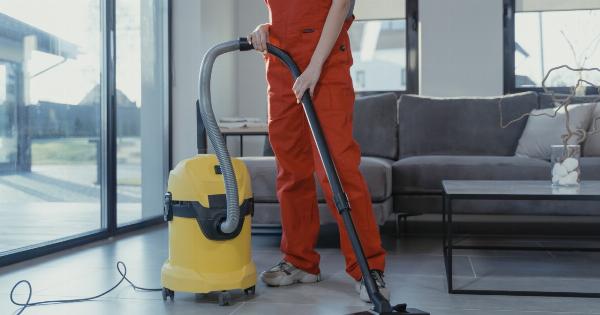Spring brings vibrant flowers, warmer temperatures, and unfortunately, seasonal allergies for many people.
As the trees bloom and pollen fills the air, it can trigger a range of symptoms, including sneezing, itchy and watery eyes, congestion, and coughing. However, there are ways to protect yourself from springtime allergies and enjoy the beauty of the season. Read on for valuable tips on how to alleviate your allergy symptoms and improve your overall well-being during this time of the year.
1. Stay Informed about Pollen Levels
Knowledge is power when it comes to springtime allergies. Keep track of daily pollen forecasts, which are often available through local weather reports or online sources. These forecasts provide information about the pollen count in your area.
On days when the pollen levels are particularly high, consider staying indoors or taking precautionary measures like wearing sunglasses and a hat.
2. Keep Your Windows Closed
While it’s tempting to let fresh air into your home during the spring months, keeping your windows open can invite allergens inside. Pollen can easily find its way into your living space and worsen your symptoms.
Instead, rely on air conditioning or fans to circulate air if needed. Additionally, make sure to change the filters in your air conditioning unit regularly to trap allergens effectively.
3. Take Showers and Change Clothes after Outdoor Activities
After spending time outside, it’s important to minimize bringing allergens into your home. Pollen can stick to your hair, skin, and clothing, so taking a shower and changing into clean clothes can help reduce your exposure.
This simple habit will keep pollen from clinging to pillows, furniture, and other surfaces, ensuring a more allergen-free environment indoors.
4. Create an Allergy-Free Zone at Home
Designate a specific area in your home where you can retreat to and breathe easy. Ideally, this room should have hard surfaces that are easy to clean, such as wood or laminate flooring.
Keep it a pet-free zone as well, as pets can carry pollen on their fur. Utilize high-efficiency particulate air (HEPA) filters in this room to further reduce allergens in the air.
5. Maintain a Clean Living Environment
Dust and allergens can accumulate inside your home, exacerbating your allergy symptoms. Regularly cleaning your living space can make a significant difference.
Dust surfaces and vacuum carpets at least once a week, using a vacuum cleaner equipped with a HEPA filter. Additionally, consider using allergen-proof covers for your pillows and mattresses to keep them free from dust mites.
6. Wear appropriate clothing
When spending time outdoors during allergy season, take precautions by wearing appropriate clothing. Opt for sunglasses to protect your eyes from airborne allergens. Wearing a wide-brimmed hat can help shield your face and hair.
Additionally, consider wearing long sleeves and pants to minimize skin exposure to allergens and prevent them from sticking to your body.
7. Rinse Your Sinuses
One effective way to alleviate allergy symptoms is by rinsing your sinuses regularly. Use a saline solution to flush out irritants, such as pollen and dust, from your nasal passages.
Neti pots or squeeze bottles designed for nasal rinsing can be purchased at most drugstores or online. Make sure to use distilled or sterile water and strictly follow the instructions provided.
8. Monitor Indoor Humidity Levels
Excess moisture indoors can create an ideal environment for mold growth, which can trigger allergies. Use a dehumidifier, particularly in basements or other areas prone to dampness, to maintain indoor humidity levels below 50%.
By controlling humidity, you can effectively inhibit mold growth and reduce the likelihood of experiencing allergy symptoms.
9. Consider Over-the-Counter Medications
Over-the-counter allergy medications can provide relief for mild to moderate symptoms. Antihistamines can help reduce sneezing, itching, and runny nose, while nasal sprays can alleviate nasal congestion.
However, it’s essential to consult a healthcare professional or pharmacist before taking any medication to ensure it is appropriate for your specific needs.
10. Consult with an Allergist
If your springtime allergies are severe or if over-the-counter remedies are not effective, consider seeking help from an allergist.
An allergist can conduct tests to identify specific allergens that trigger your symptoms and develop a personalized treatment plan. This may include prescription medications, immunotherapy (allergy shots), or advice on further environmental changes to reduce your exposure to allergens.































